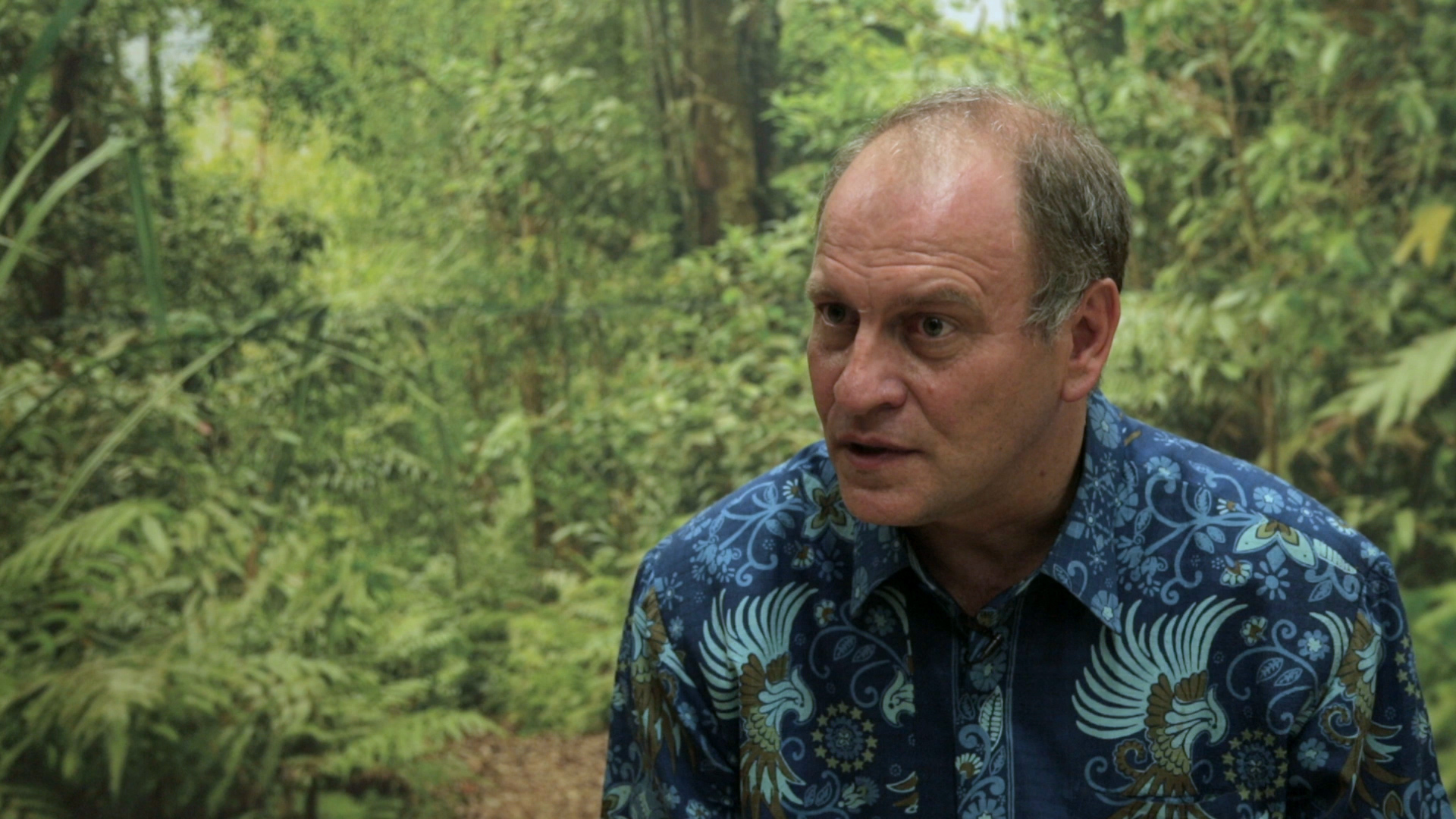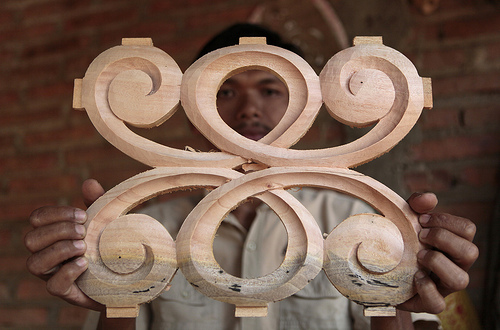The Indonesian government is the first to adopt the European Union’s new FLEGT (Forest Law Enforcement, Governance and Trade) licensing scheme, which aims to ease the process of exporting certified legal timber.
A national policy dialogue held in Jakarta on 13 July discussed how to maximize the benefits for small- and medium-sized enterprises (SMEs), and ensure the best outcomes for trade, conservation and livelihoods.
Victoria Simanungkalit, Deputy Director for Production and Marketing at the Indonesian Ministry of Cooperatives and SMEs, sat down with the Center for International Forestry Research (CIFOR) on the sidelines of the event to give some brief insights into what the government is doing to include small operators.
Why is FLEGT so important for SMEs in Indonesia?
First of all, the Indonesian government has already made a commitment to building businesses that are environmentally sound. We have to look after the environment as part of a system of sustainable business. And in this type of business in Indonesia, SMEs play an important role. For those who are already involved, we need to encourage them to carry out green business practices. One industry in this area is timber. That’s why the government feels it’s important to encourage SMEs to apply timber industry verification systems, so that we can protect the forest as a source of raw materials, and process those materials in a way that protects the environment and promotes business sustainability.
You mentioned that the government should not ‘coddle’ SMEs in Indonesia. Can you explain further?
SMEs must not be sheltered behind excuses like: “I’m only small. I’m weak. I don’t have anything.” That’s the condition now. But if we let them go on like that, they’ll only stay weak, they won’t take action to advance. We must push them to change their view, to see their weaknesses as challenges. They say their access to capital is weak, that it’s limited – OK so what are the challenges? That’s the area where the government is concentrating now.
Then there is the issue of human resources. We need to build capacity. They cannot just say, “I don’t know anything.” That’s a task for the government, to provide them with information, to mentor them so that they can build capacity. So that when the time comes that they are out in the real world, they can be competitive in a global market.
Are there different challenges faced by medium- and small-sized businesses?
Absolutely. They are very different, in mindset, capital, human resources, professional skills — all different. So this is what we need to strengthen. Especially for small businesses, we need to build their strength so that they can advance. So our programs actually aim to raise up SMEs from microbusinesses to small and medium enterprises, so that they can compete.
Why do you think dialogues like this one are important for the success of FLEGT?
Because it’s not possible for us to work on this as individuals. We need to have synergy. All stakeholders need to know, need to understand, that we need focus group discussions. But the challenge is, how do we make sure that these discussions aren’t just going over the same things? So we need to keep improving to ensure that these discussions actually solve problems. The focus should be on problem-solving, discussion, finding a way out, and taking action.
The discussion topics need to become more in-depth, and make advances toward solving problems. Earlier we had protests, or input, from the SMEs: “We have problems that have not been addressed.” So our discussion should work on solving problems like those.
We want you to share Forests News content, which is licensed under Creative Commons Attribution-NonCommercial-ShareAlike 4.0 International (CC BY-NC-SA 4.0). This means you are free to redistribute our material for non-commercial purposes. All we ask is that you give Forests News appropriate credit and link to the original Forests News content, indicate if changes were made, and distribute your contributions under the same Creative Commons license. You must notify Forests News if you repost, reprint or reuse our materials by contacting forestsnews@cifor-icraf.org.

